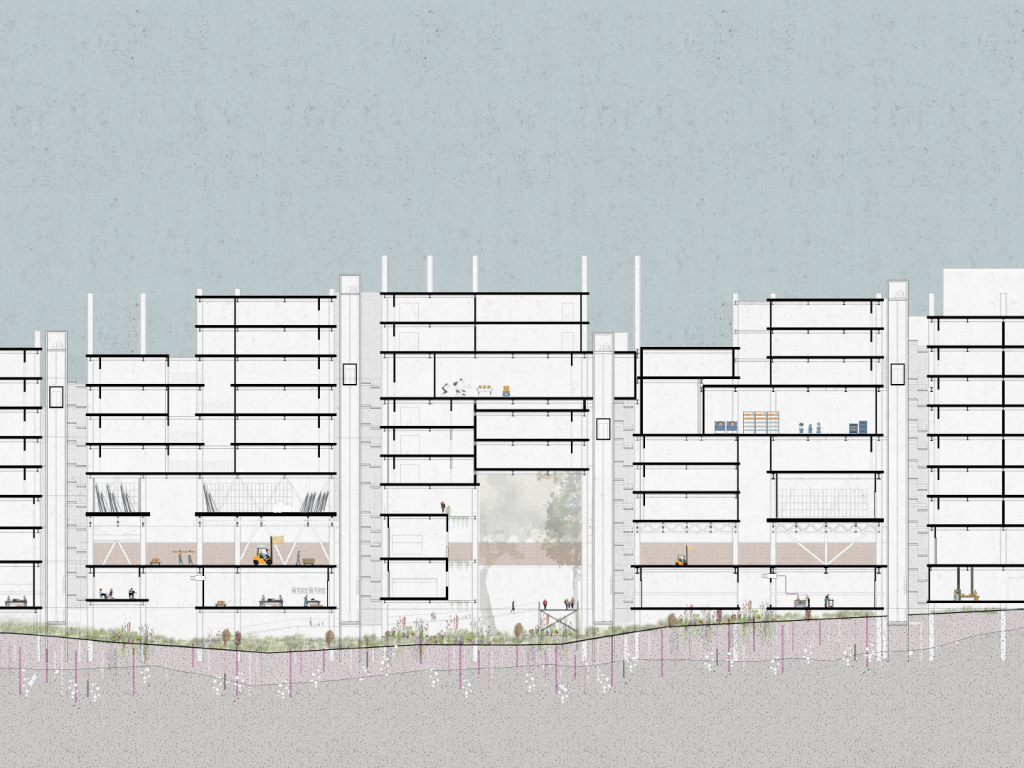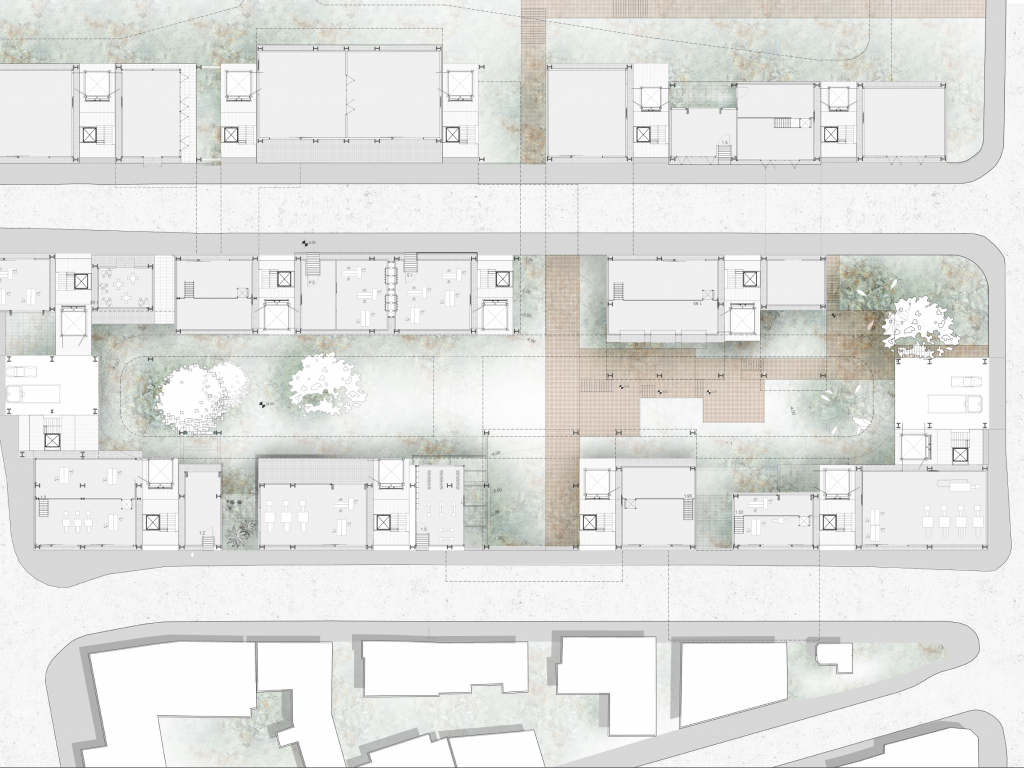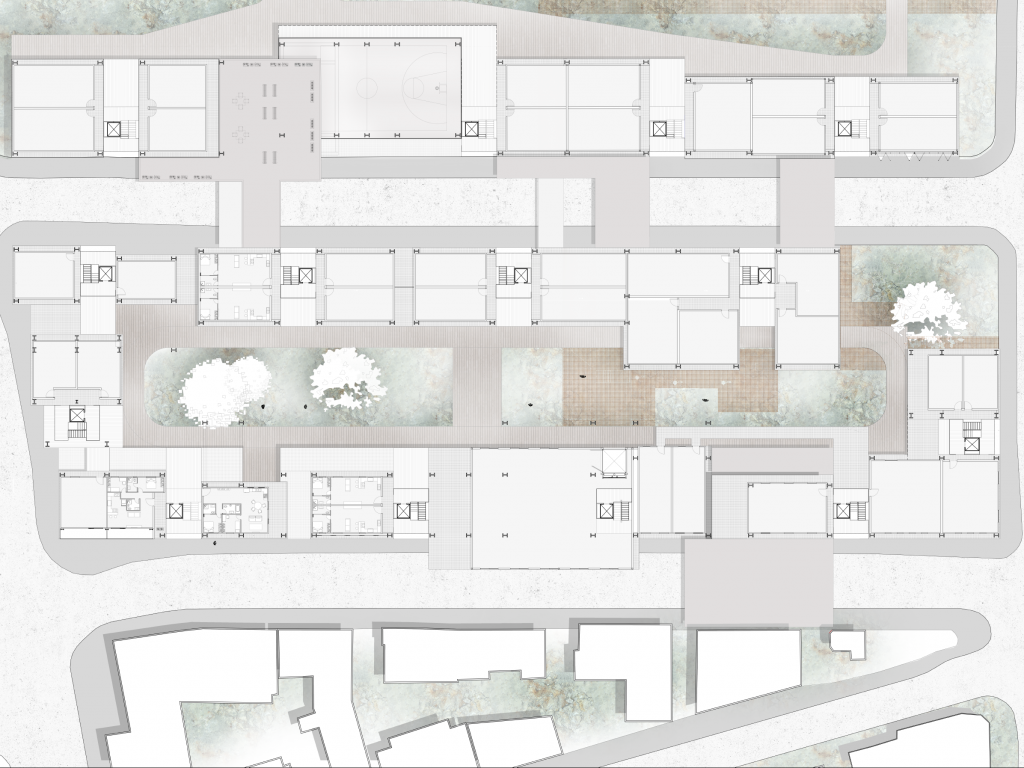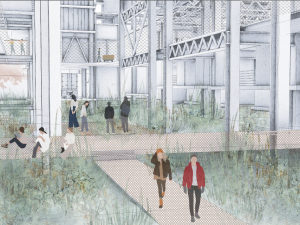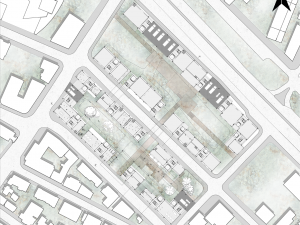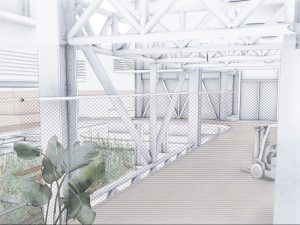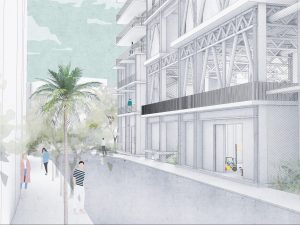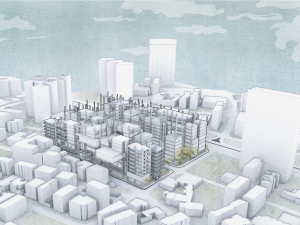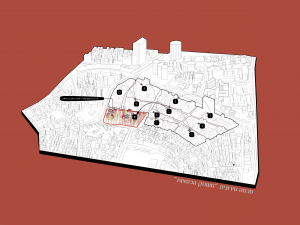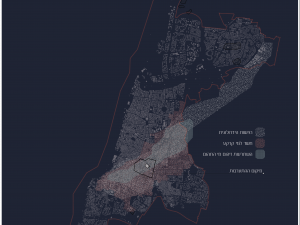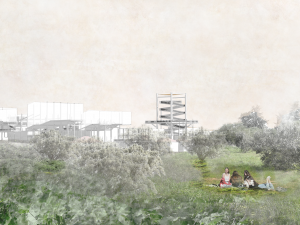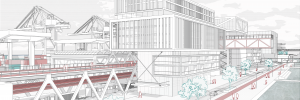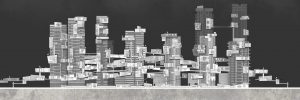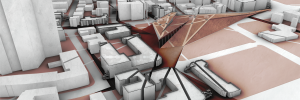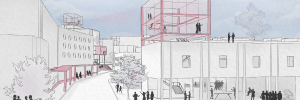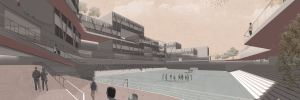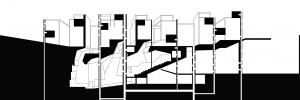Small Industry in a Big City
The post-industrial city operates mechanisms for creating growth and profits, while its spaces become sterile in terms of both space and class, and therefore exclusionary. The removal of production spaces to the outskirts of the city, away from the “desirable” area, is a generator and symptom of this aspiration.
Small-scale industry, like heavy industry, is perceived as polluting and harmful to the environment, and being driven out of the urban space of Western cities. Likewise, it is not seen as a proper component in the urban mix of uses whose role, among others, is to increase the real estate value of the area. However, the existence of small-scale industry in the city has many advantages: it has an anti-monopolistic influence on space, and it relies on private and local entrepreneurs, strengthens the middle class and enriches street life.
Hence, the project proposes creating a physical environment that enables the existence of small industry in the city in a manner capable of addressing the damage it has created – soil and groundwater pollution.
The issue is examined in the city of Tel Aviv, which from its inception was cleared of industry, with small-scale industry concentrated on its fringes, along the “Factory Strip”. Its development as a metropolitan and global city has led to a change in the Strip’s character and the growth of the metropolitan’s main business center in its territory. Thus, corporate towers are pushing out the small industry that remains and challenging its continued existence as part of the urban space.
The displacement of industry was not necessarily accompanied by a reduction or eradication of the pollution it created. Moreover, urban renewal projects can be seen as producing a false impression that the space is being rehabilitated, while pollution continues to spread and permeate the soil, also contaminating the groundwater and, in particular, destroying .
The intervention strategy addresses two main paths: the first entails increasing and strengthening the spatial presence of the producer network and its contribution to the urban space and street; the second is ground cleaning as an action that takes part in daily life in a rehabilitated but active space. Their integration is realized by creating a perimeter block typology, which is built gradually and flexibly, based on a column construction. Thus the building is detached from the ground yet still connected to the street level. The result is an urban experience that brings together street life, nature, residences, and industrial and operational spaces.
The project offers an alternative to soil restoration from pollution while creating motivation for long-term spatial-socio-economic healing; it does so in a manner that provides a platform for the development of local productive forces that enable the creation of multi-class living spaces in the city.



